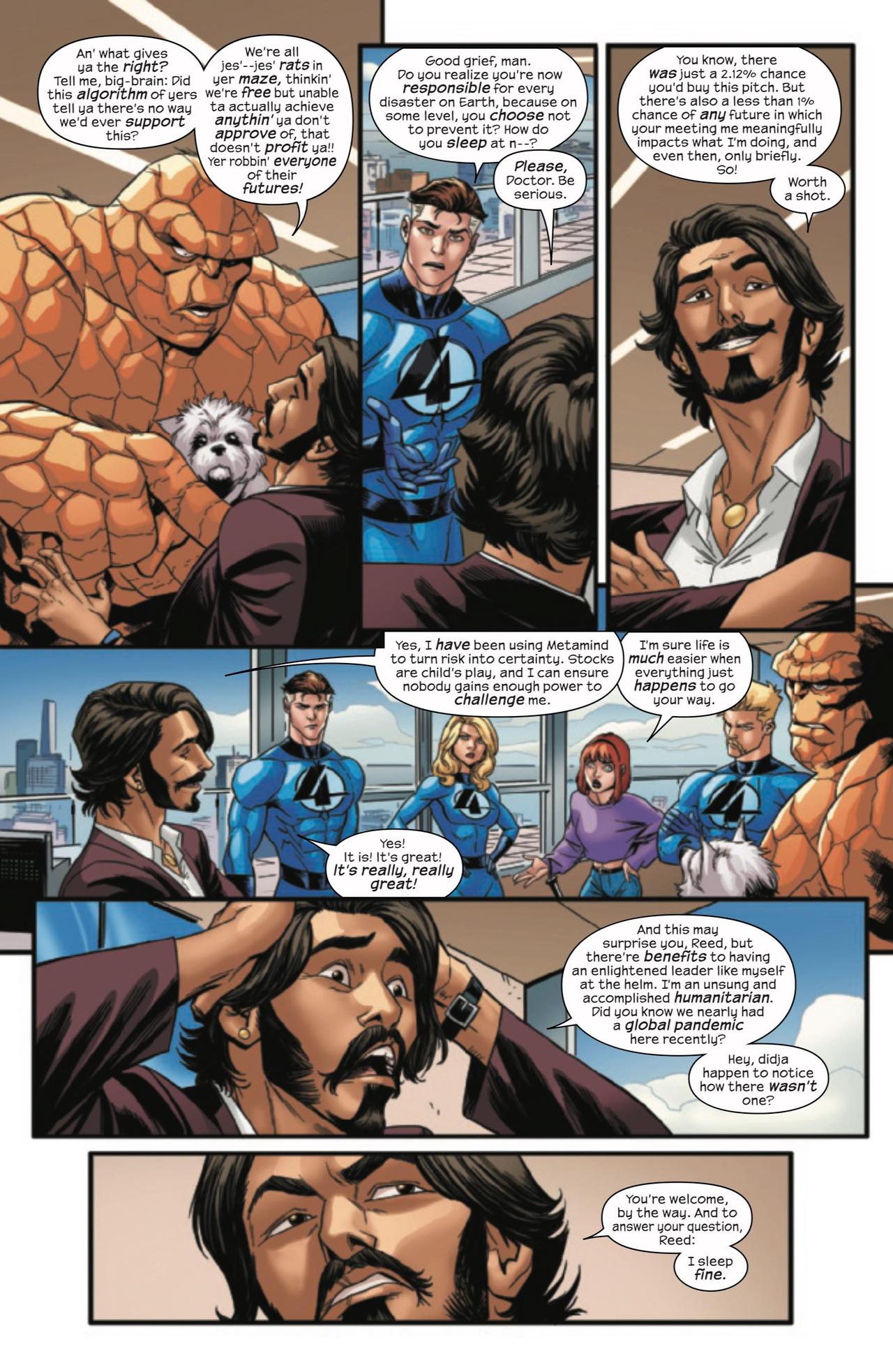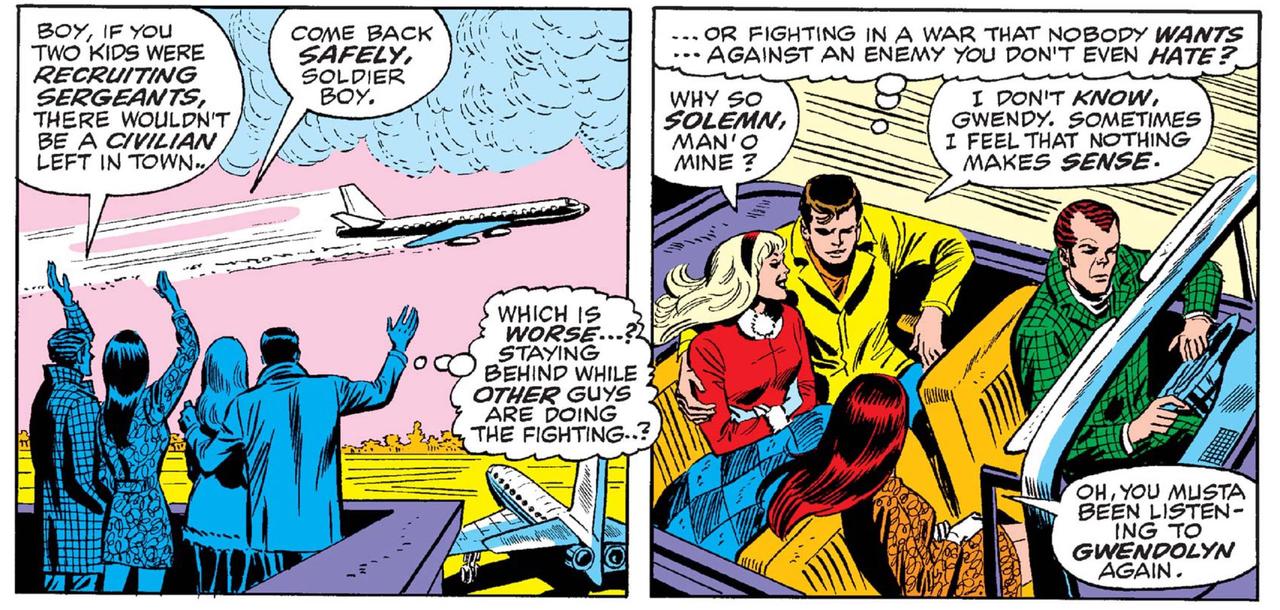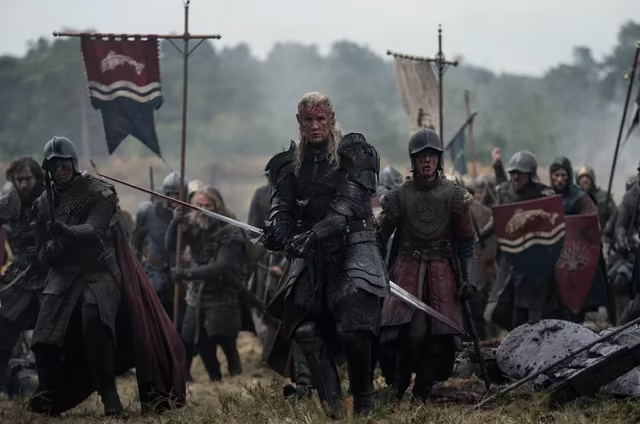If you click on a link and make a purchase we may receive a small commission. Read our editorial policy.
How Marvel apparently avoided COVID-19 pandemic in its comic universe
Did the Marvel Universe experience the pandemic? According to Fantastic Four #14, it was stopped by AI.

The Marvel Universe has always tried to mirror reality. Yes, they have Asgardian gods and giant sentient trees, but for the most part they’ve tried to build a world that closely resembles our own. Their heroes have had financial troubles, health care concerns, and other struggles reflective of the times. Major world events like the Vietnam War have also been incorporated into Marvel’s narrative.
But did Marvel experience the COVID-19 pandemic?
The pandemic was one of our planet's biggest historical events in recent times. Without it, our world today would be a different place. So, how did it affect the Marvel Universe?
Fantastic Four #14 (written by Ryan North and penciled by Ivan Fiorelli) gives us an interesting answer.
Warning: Spoilers ahead for Fantastic Four #14!
How COVID was stopped in the Marvel Universe

In Fantastic Four #14 we learn that the pandemic was stopped by a social media billionaire using a controversial AI system.
Let’s back up…
The Fantastic Four learn about an app called Metamind, which gives users in-game rewards for completing tasks in the real world. The app was developed by Teklogico, a company owned by Dan Passi. At first glance, Metamind seems harmless, but the FF soon notice a strange pattern. Each user task might seem random, but when they’re put together, these real world missions are part of a goal to strengthen Passi’s empire. Since no two users get the same missions, nobody ever had a complete picture.
This wouldn’t be a problem on its own, but some of the Metamind missions have involved supervillains building a satellite that could prevent the FF from rescuing an entire city block (it’s a long story). The FF confront Passi, who reveals that he’s developed an AI system so advanced that it’s able to use real time data to predict the future.
Passi's AI system is basically a cheat code for the Butterfly Effect theory. Passi has the ability to determine which dominos need to fall in order to create a future that’s more beneficial to him. How does he make those dominos fall? By creating tasks in the Metamind app. And of course, the more people use Metamind, the more data the AI collects.
“A quick maintenance check is ordered on a private jet, and a senator is delayed on her way to a crucial vote. A specialized machinist gets an extra day of vacation, and another company, twelve links down the supply chain, has to scale back production. A man and a woman find themselves at a party they weren’t planning to attend, and three months later they cheat on their spouses, and a political dynasty falls apart before it begins,” Passi explains.
The Fantastic Four are horrified at this. “Everyone on the app, they’re trading their futures for imaginary gems,” Alicia Grimm says. “Just because something’s legal, doesn’t mean it’s ethical,” Sue Richards adds.
But Passi tries to convince them that the world is a better place with him in the driver’s seat. “This might surprise you, Reed, but there’re benefits to having an enlightened leader like myself at the helm. I’m an unsung and accomplished humanitarian. Did you know we nearly had a global pandemic here recently? Hey, didja happen to notice how there wasn’t one,” Passi says.
He doesn’t clarify what this pandemic could have been, or how he stopped it, but the implications are clear. It seems like Passi used his advanced AI to prevent the spread of COVID-19 in the Marvel Universe.
In the end, Passi finds out he’s lost control over his AI, and the FF destroy it. At the end of the issue, Reed resolves to create his own AI, designed only to detect when another Metamind is being developed, and to stop global pandemics.
How Marvel has handled real world events

In the past Marvel has incorporated real world events into their stories. During the ‘60s Amazing Spider-Man dealt with the draft when Peter Parker’s classmate Flash Thompson fought in the Vietnam War. After 9/11, Marvel published Amazing Spider-Man #36 (2001), which saw various heroes and villains react to the destruction of the World Trade Center.
Fantastic Four #14 raises a question about how storytelling media should address the pandemic. COVID-19 was responsible for almost 7 million deaths worldwide, and the world is still recovering. Referencing COVID in a superhero tale is tricky, because you don’t want to make light of it. In a world where world-ending apocalypses happen every Wednesday, you run the risk of either downplaying the pandemic, or insulting readers by equating a real tragedy to Carnage’s latest rampage.
However, it’s also hard to ignore the pandemic. For over two years it dominated almost every aspect of our lives. Education, health care, entertainment, and business have been fundamentally changed. It feels like a big thing to ignore. Should we just keep pretending that COVID didn’t happen in all forms of fiction?
The Marvel Universe has often been called ‘the world outside your window,’ so shouldn’t it reflect the real world? On the other hand, comic books are escapism. How do you find the balance, especially with something as big as COVID-19?
Popverse readers, I’ll be honest, I don’t have the answer.
For now the stance seems to be that the Marvel Universe didn’t experience the pandemic, but that could change depending on the writer, the editor, and the story they’re telling.
An advanced review copy for Fantastic Four #14 was provided ahead of release by Marvel.
Is Marvel's Mystique trans? What we should learn from latest X-Men twist
Follow Popverse for upcoming event coverage and news
Find out how we conduct our review by reading our review policy
Let Popverse be your tour guide through the wilderness of pop culture
Sign in and let us help you find your new favorite thing.
















Comments
Want to join the discussion? Please activate your account first.
Visit Reedpop ID if you need to resend the confirmation email.